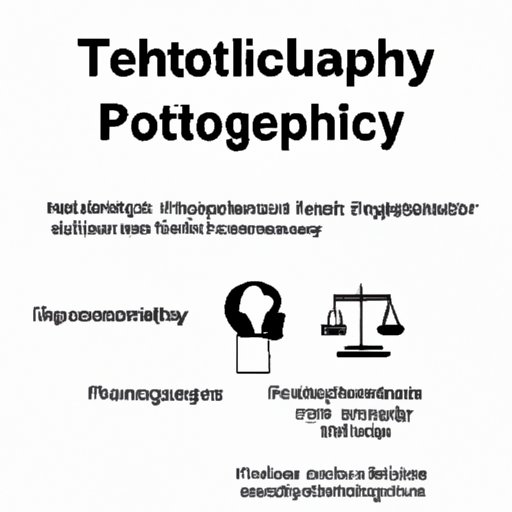Introduction
Psychology is the study of human behavior, thought processes, and emotions. It is a science that seeks to understand individuals and groups by establishing general principles and researching specific cases. But when did psychology become a science? In this article, we will explore the historical development of psychological research and examine the criteria for psychology to be considered a science. We will also investigate the theories and pioneers that have contributed to psychology’s development as a scientific discipline and analyze the impact of the scientific method on psychology. Finally, we will look at the role of psychology in society today.
A Historical Overview of Psychology Becoming a Science
The roots of psychology can be traced back to ancient Greece, where philosophers such as Plato and Aristotle explored topics such as consciousness, memory, and motivation. However, psychology did not become an established science until the 19th century. German physician Wilhelm Wundt is often credited with being the founder of psychology as a scientific enterprise. In 1879, he established the first laboratory dedicated to psychological research at the University of Leipzig. This marked the beginning of an era of empirical research in psychology.
In the early 20th century, psychologists began to use scientific methods such as observation, experimentation, and measurement to study behavior and mental processes. Pioneers such as Ivan Pavlov, Sigmund Freud, and B.F. Skinner developed influential theories that helped to shape the field of psychology. By the 1940s, the use of the scientific method had become firmly entrenched in psychology and the discipline was recognized as a legitimate science.

Examining the Criteria for Psychology to be Considered a Science
For a discipline to be considered a science, it must meet certain criteria. These criteria include the use of empirical evidence, systematic observation and experimentation, and replicable results. Empirical evidence refers to data that has been collected through observation or experimentation. Systematic observation involves the use of controlled conditions to observe behavior or mental processes. Experimentation involves manipulating variables in order to measure their effects on behavior or mental processes. Replicable results are results that can be reproduced through further experimentation.

Exploring the Theories and Pioneers that Contributed to Psychology as a Science
Sigmund Freud’s psychoanalytic theory made significant contributions to psychology becoming a science. Freud believed that unconscious mental processes could be uncovered through careful analysis of behavior and free association. His ideas provided a foundation upon which other theories could be built.
Ivan Pavlov’s experiments on classical conditioning were instrumental in developing psychology as a science. Through his experiments, Pavlov demonstrated how behavior could be modified through the use of rewards and punishments. His work laid the groundwork for the development of behaviorism, a school of psychology that focused on observable behavior rather than internal mental processes.
Abraham Maslow’s hierarchy of needs was another major contribution to psychology becoming a science. Maslow argued that humans have a basic set of needs that must be met in order for them to reach their full potential. His theory provided insight into human motivation and behavior, and it remains influential in psychology today.
Analyzing the Impact of the Scientific Method on Psychology
The use of the scientific method has had both positive and negative impacts on psychology. On the one hand, the scientific method provides a reliable way to test hypotheses and draw conclusions about behavior and mental processes. This allows researchers to make progress on understanding complex psychological phenomena. On the other hand, the scientific method can be limited in its ability to capture the complexity of human behavior and emotions. For example, the use of controlled conditions may not accurately reflect real-world situations.

Investigating the Role of Psychology in Society Today
Today, psychology plays an important role in many areas of society. In healthcare, psychology is used to diagnose and treat mental health conditions such as depression and anxiety. In education, psychology is used to understand how children learn and develop. In criminal justice, psychology is used to assess offenders and inform sentencing decisions. Overall, psychology is an integral part of modern life.
Conclusion
In conclusion, psychology has come a long way since its beginnings in ancient Greece. Through the use of empirical evidence, systematic observation, experimentation, and replicable results, psychology has become a well-established science. Pioneers such as Freud, Pavlov, and Maslow have made significant contributions to the field, and the scientific method has provided a reliable way to study behavior and mental processes. Today, psychology plays an important role in many aspects of society, from healthcare to criminal justice. As the field continues to evolve, it will no doubt remain a vital part of our lives.
(Note: Is this article not meeting your expectations? Do you have knowledge or insights to share? Unlock new opportunities and expand your reach by joining our authors team. Click Registration to join us and share your expertise with our readers.)
